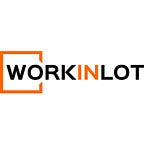BioNTech (2008) is an R&D company founded by Uğur Şahin, Özlem Türeci and Christoph Huber.
It was initially funded by the German Government.
And later got invested in and its technology got commercialized by corporations like Pfizer and Sanofi.
We know about BioNTech because they helped save several hundred million lives.
Most of us don't know about thousands of R&D companies around the world tackling other problems. Ones that also make a meaningful impact on technological and social advancement.
This article is about how Workinlot works with Turkish R&D companies in our corporate accelerators, why they are as important as startups, what is in it for corporations.
Turkish ecosystem — Problems create opportunities
Let's first set the scene in the Turkish ecosystem.
Turkish industry had a 40% increase in industrial exports last year. Most of the industrial export consisted of low-tech goods. Leaving a slim profit line. Making it, extremely sensitive to energy/labor price fluctuations, which for the most part, the players have no control upon.
This was no surprise. It has been creeping in for a few decades now. Of course, the solution space is not only limited to a relative lack of knowledge economy, but it does also play a pivotal role.
The Turkish government took responsibility for the urgent transformation needs of the industry. Technoparks were launched with the collective efforts from universities and government initiatives, significantly incentivizing technology R&D.
Out of 1000 TechnoParks worldwide, 89 are already located in Turkey. The technoparks are home to most of the R&D companies and they utilize government incentives.
As a result, we now have a large pool of companies (several times the number of startups) actively engaging in R&D in a vast array of technology fields, funding themselves largely through the incentives such as grants, tax exemptions, and more.
But, something is missing from this picture.
There is ample motivation for R&D but almost none for the commercialization of knowledge. In other words, while the knowledge is being created, economic value add lags in comparison. The brightest PhDs in Turkey, rack up in projects sponsored by government grants. And herein lies another problem, which takes capacity away from the engineers and scientists which they could have used for commercialization.
Government incentives are what they are. The silver lining is that there is a lot of paperwork and bureaucracy. Filing reports for the government grant inspections on regular basis, taking the jury/government officials on regular audits, etc.
Technoparks with advantageous real estate offerings; continue to prosper. Resident R&D companies, secure their payroll by government grants or work part-time as consultants on-demand.
The need for product commercialization becomes a “nice to have” and mostly outside the comfort zone.
So why bother with VCs, angel investors, or international partnerships when you are already funded?
With the financial crisis, things started to take a different turn…
Strong devaluation of local currency, the glamour of the startup investments, and the recent success of Turkish tech unicorns and decacorns…Turkish R&D companies have become hot prospects for the international job market. As a talent, not a product or service offer.
R&D Companies & Workinlot
Our experience with the R&D companies dates back to 2016. During different corporate accelerator programs, we identified teams that are technologically advanced but without scalable (ie investable) business models. Team of scientists and engineers, capable of running sophisticated projects like,
- Dark factory indoor navigation
- Manufacturing autonomous sea vehicles
- UAV image recognition projects for the defense contractors (Converted to detect safe manufacturing in one customer case)
- New hardware solutions for batteries
- Space program contractors
- Renewable materials to guard EV car batteries
With this pool in abundance, we chose to figure out how best to extract value and developed our unique approach while building a warehouse of R&D companies.
Workinlot builds product/service strategies alongside R&D companies, facilitates corporate engagement, and helps launch scalable spinoffs/projects to solve corporate innovation demand.
The success of the corporate - R&D company engagement, reveals investment opportunities for the VCs and the CVCs.
All the while, working closely with our corporate partners to ensure that the solution fully matched the problem of opportunity that they value. In other words, validating problem-solution fit. The natural next step is to invest in the validated B2B solutions and bring further scale.
As of today, more than half of our corporate engagement solutions come from R&D companies. The technology developed by these companies is more stable compared to most startups, which is a key criteria in corporations' vendor selection checklist. This is due to the team structure R&D companies bring to the table. Seasoned engineers, scientists with a corporate or academic background.
Workinlot’s corporate accelerators, bundle technical capability with network and business development skills, making the engagement swifter and conclusive. And yes, we are already designing a venture investment scheme and funding this unique approach.
What to do next?
- If you want to learn how open innovation benefits your corporation, set up your corporate innovation strategy
- If you are ready to launch your own corporate accelerator or take part in another corporate accelerator Workinlot launched
- We can provide you a deal-flow and support your CVC OR corporate accelerator
Drop us a line.
Atilla Erel & Baran Korkut, March 2022, Istanbul & Dubai
